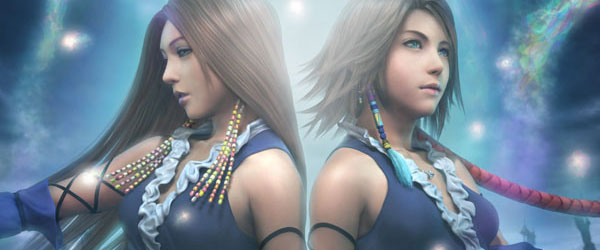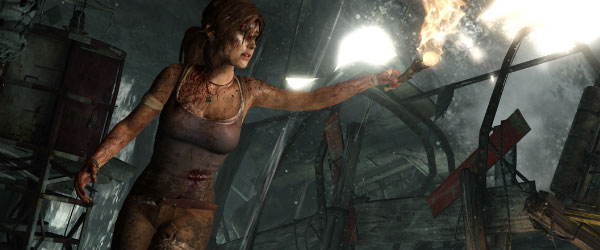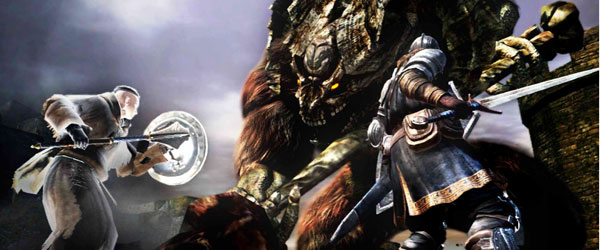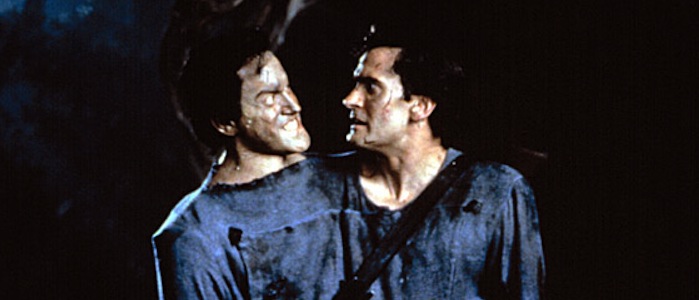Every year when E3 rolls around I hear the same thing from gamers, “What I really want is a new IP. I’m tired of sequels.” This time, I decided to do some investigation to see how true that really is. At the risk of having the rest of this article go unread, I’ll give you the simple answer right here. We buy sequels. Lots of them. What surprised me, though, is how sales continue to grow for series in which narrative is both complex and integral for enjoyment.
I asked my followers on Twitter to suggest some series that have convoluted narratives that would be difficult to take up without first playing earlier entries. I got some great suggestions. My assumption was that sales of sequels, while still strong, would be slowly declining. I was dead wrong. Here are some highlights of my research:
- Resident Evil 5 was the highest selling game in the series, even though many have suggested that the plot was hard to follow without prior knowledge of the characters.
- Assassin’s Creed, a series known for its cliffhanger endings, has grown a bit with the first game selling 8 million copies since its release in 2007, the sequel selling 9 million since 2009, and Brotherhood having moved 8 million copies in less than a year.
- Dead Space sold a total of approximately 2 million copies with the sequel selling that many in just the first week.
- Few series sport a more tangled narrative than Metal Gear Solid. Metal Gear Solid 4 was the top-selling PS3 exclusive until Gran Turismo 5 released. The the first year, the game moved approximately 5 million copies, which is only a million less than the original title’s total sales since 1998. It promises to get another sales bump after the Metal Gear Solid HD collection releases this fall.

As a counterpoint, and one of particular interest for Final Fantasy fans, Final Fantasy X sold 6.6 million copies. The first direct Final Fantasy sequel ever produced, Final Fantasy X-2, moved only 3 million units. In case you were wondering why Square Enix has largely shied away from remakes and sequels, there’s your answer.
While this certainly answers the question of why publishers are cranking out sequel after sequel, it doesn’t tell the whole story.
Clearly, there are some gamers that are more interested in gameplay than narrative. For those individuals, it probably doesn’t matter that they don’t understand everything put in front of them. Additionally, as we move further from a game’s release, used game sales cloud the reported numbers. It could very well be that the number of users playing games in a series are declining, but as adoption rates for consoles increase, the number of new units sold continues to increase. Only time will tell if the upward trend will continue.
A slight variant to the sequel, the reboot, is becoming more common in the gaming industry. There are a number of reasons why we might see reboots rather than direct sequels. The first is that a story might have reached a natural conclusion or the story had become so convoluted that it was easier to wipe the slate clean. A perfect example of this is Bioshock.
Irrational actually had no interest in making Bioshock 2 (and, in fact, the game was developed by a number of different studios in concert). Ken Levine stated publicly after the sequel’s release that he felt that Rapture’s story had come to a close after the first game. Given the drop in narrative quality in the sequel, many agree. Fast-forward to this E3 and Bioshock Infinite racked up countless Game of Show awards. While this new title retains some of the core gameplay elements and mechanics that made the first Bioshock great, it is a departure in almost every other way.
Another reason that reboots are often chosen is that too much time has passed in between series entries. Often, these games seem to have only the loosest of connections to the source material. Microsoft’s Shadowrun and the upcoming XCOM are two examples of reboots taking a popular franchise and adapting it for contemporary audiences, not always successfully. Reboots are tricky because they have the potential to alienate long-time fans, while failing to attract the new audience that would be necessary to keep the series afloat.

We are also beginning to see a third instance of reboots. Sometimes quality slides so much over time that all a publisher can do is strip the game down to it’s most basic parts (either character or setting) and rebuild from there. The Tomb Raider series, once considered one of gaming’s top franchises, has been passed from developer to developer, often suffering significantly in the process. Instead of the groaning that accompanied the announcement of recent entries, the reboot has earned a great deal of attention. Many hope that this will revitalize and reorient the series, bringing it back to its former glory.
Some of the most successful series, including Final Fantasy, The Elder Scrolls and Grand Theft Auto are almost always reboots with each and every entry. In many of these games there are nods to previous entries that long-time fans will love, but there is nothing standing in the way of a new player diving in to the latest entry. Each is a self-contained story that draws allusions to earlier titles without being encumbered by them.
So, if we take it as a given that sequels sell and reboots can update a property for new audiences, why would a developer ever create a new intellectual property (IP)?
Unfortunately, this is a question being asked by the biggest publishers. Many gamers aren’t willing to take a risk on purchasing a new $60 game without having a complete understanding of what they’ll be playing. Instead, they wait until the game hits the bargain bin before dipping a toe in the water. If we want to see more new IPs, gamers need to be willing to take a risk every once in a while. On the flip side, publishers need to go the extra mile to educate the public about new titles.
It’s OK for publishers to make comparisons to other games. “God of War clone” isn’t necessarily a pejorative if the game is fun and distinguishes itself through characters, setting, narrative and dialog, even if it shares gameplay elements with Sony’s marquee series. Darksiders, which was accused by so many of that very “crime” is considered a sleeper hit, and one that has earned a sequel. Rather than let the media slap that affiliation on a game, publishers should embrace the strong mechanics their new game borrows from its forbearers. It’s not that God of War was the first game to feature a combination of action, puzzles and platforming. It just did it better than so many others, that it became the benchmark.

A great tactic that developers are employing is to offer the type of early adoption incentives that we’ve come to know as “Signature Editions.” These are limited edition upgrades that purchasers get for pre-ordering the game regardless of retailer and without a price premium. Demon’s Souls, Dragon Age 2, and many Atlus titles have offered these types of benefits whether they are in-game content, soundtracks and art assets, or even a second game included in the package.
Of course, good marketing doesn’t make up for a mediocre, or even average, game. Kaos Studios, the makers of Homefront, were recently shuttered in another example of a lower-than-expected critical reviews and sales numbers leading to lost jobs. It’s no doubt that with the amount of money poured into promoting Homefront that THQ was banking on the title being the first in a successful series. Rather than having something to build on, they will likely have to start from scratch with a new IP if they are looking to diversify.
Developers and publishers are going to take fewer and fewer risks on new properties if gamers continue to steer toward familiarity first. Gamers won’t take risks on new IPs if publishers don’t make a good case for early adoption.
People who make games and the people that buy them need to either meet in the middle or revise expectations. Until then, expect games like Darksiders, Enslaved: Journey to the West, and Beyond Good and Evil to do better in the bargain bin than on the new release shelves.

John "Dubya" Whitehouse
It is a fine line that publishers tread. As you mentioned, gamers want new IP but when one does come their way, they seldom want to take the risk in buying it brand new. Unfortunately, even with reviewers like us out there shouting about a great title (like Enslaved) and telling people that it is worth their money, it doesn’t change the fact that they would rather wait for a title to drop in price. This also isn’t helped by the fact that its pretty much a dead cert a new game will be put on a limited sale, just weeks after it’s released. I went in to my local GAME store today to see that LA Noire was down to £29.99 (£10 off). No only is that game just over month old, it was also a highly marketed and highly anticipated title. So many gamers will see that and expect that a 2nd rate title will do the same and then just wait for the price to fall.
Bigevilworldwide
Wouldn’t darksiders have been a Zelda clone like pretty much exactly…Not that its bad because darksiders was great…But why must we call games clones anyways…If its good its good who cares if its like another game
Michael "Red Pen of Doom" Futter
Exactly my point. I should have been clearer that I was simply suggesting that Darksiders was accused of being a “clone.” I think that people call games “clones” because they lack the vocabulary (or simply don’t want to spend the time) to detail the mechanics of new games.
Instead, people take the easy way out and try to draw a 1:1 comparison between an unknown and a known.